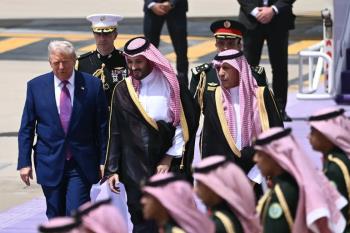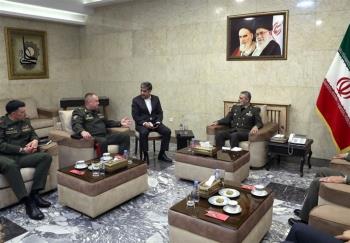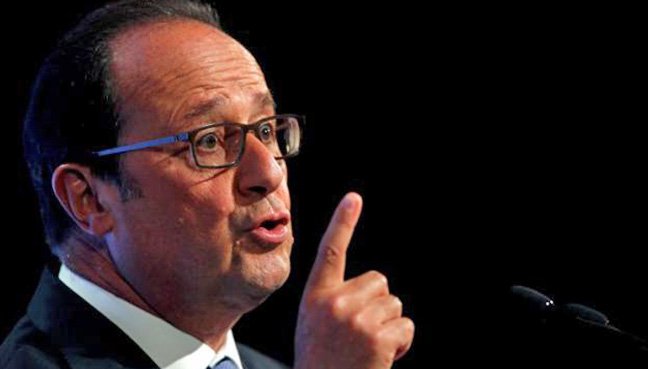Alwaght- The response by the United States to the September 2001 terrorist attacks, particularly the invasion of Iraq, fostered rather than curbed global terrorism, French President Francois Hollande has said.
In a Facebook post commemorating the victims of the 9/11 attacks, Hollande criticized the way the administration of then President George W. Bush responded to the tragedy.
"The response that the American administration gave to these attacks... far from eradicating the threat, expanded it over a wider area. Namely to Iraq," the French president wrote.
"And even though France, through [ex-President] Jacques Chirac, rightly refused to join the intervention [in Iraq] which it condemned, it has nonetheless been a victim of the consequences of the chaos it caused." Referring to attacks by terrorists in his country, Hollande said each such attack was like a re-enactment of 9/11, with its consequences of "buried lives, broken destinies and grieving families."
The French president added that terrorists are targeting democracy, freedom, tolerance and culture.
The open criticism of US policies by the French president is a pointer to attempts by Paris to adopt more independent stances and policies on international issues.
Following 9/11 attacks carried out on US soil and blamed on the Al-Qaeda terrorist group, the immediate reaction by Washington was to launch an attack on Afghanistan to oust a Taliban-controlled regime in Kabul, had given refuge to the terrorist group’s leader, Osama bin Laden.
The US continued it military adventures by invading Iraq two years later on the pretext that Iraqi dictator Saddam Hussein government had links to Al-Qaeda apart from processing Weapons of Mass Destruction. None of the allegations were true but the country was attacked and occupied.
The chaos that followed in Iraq led to the emergence of several terrorist groups including ISIS which continues to occupy parts of the Arab state while committing the most heinous crimes in modern history. ISIS has not only spread turmoil in Iraq and the West Asia region, but its tentacles have spread to other parts of the world including Europe.
France suffered most ISIS attacks in Europe
France has borne the brunt of alleged ISIS terrorist group attacks among Western European countries.
The US occupation of Iraq and Afghanistan after 9/11 and the subsequent spread of global terrorism has impacted negatively on Europe with several other countries apart from France being targeted by terrorists.
Experts opine that Hollande’s recent anti-US remarks do not necessarily imply a significant shift in the country’s foreign policy vis-à-vis Washington.
There have been occasional divergent opinion on international relation between Paris and Washington. But France, in principle, continue to support US interests be they military or political especially considering the fact that both countries a principal member of the NATO military alliance.
France like the US pursues a policy of militarization of international relations. France has been involved in multiple military interventions abroad in the past few years including especially in its former colonies in Africa.
The French people still recall nostalgically how on June 21, 1966, the country made and independent move to withdraw its troops from the US-led NATO military alliance. This decision led by French president Charles de Gaulle complicated relations with the US but asserted France’s independent stance. The current leadership in France, just like other European, states seem unable to chart policies independent of Washington’s influence.
The European Union remains dependent on the US both militarily and economically thus making it difficult to steer away from the US influence. Both sides also share common values when it comes to imposing decadent Western beliefs and values to other countries.
Is Europe drifting away from US?
However, the cohesion of the Western world has been called into question following the announcement by the German authorities on August the 28th of the collapse of the negotiations of the “Transatlantic Trade and Investment Partnership” (TTIP) between the European Union and the United States. Commenting on the TTIP around the same time, French President François Hollande said he saw no prospect of concluding the talks. He declared, “The current discussions on the treaty between Europe and the United States will not be able to reach a conclusion before the end of the year. France prefers to speak frankly on the situation and not to cultivate illusions that it will be possible to reach an agreement before the end of the American president’s term... The negotiations are bogged down, positions have not been respected; it’s clearly unbalanced.”
As trade ties with the US take a nose dive, there have been calls for European countries to deepen their military ties. Germany and France have outlined plans to deepen European military cooperation, a document showed on Monday, as Britain's exit from the European Union removes one of the biggest obstacles to stronger EU defense in tandem with NATO.
In potentially the biggest leap in European defense since the 1990s, Berlin and Paris are laying out ways for the bloc to rapidly deploy forces, with security cooperation emerging as a unifying force for Europe after Britain's shock vote to leave.
Considering the foregoing, EU , US trade and military ties might experience turbulent times in future due to changing global dynamics and emergence of new powers and players in the international arena.



























